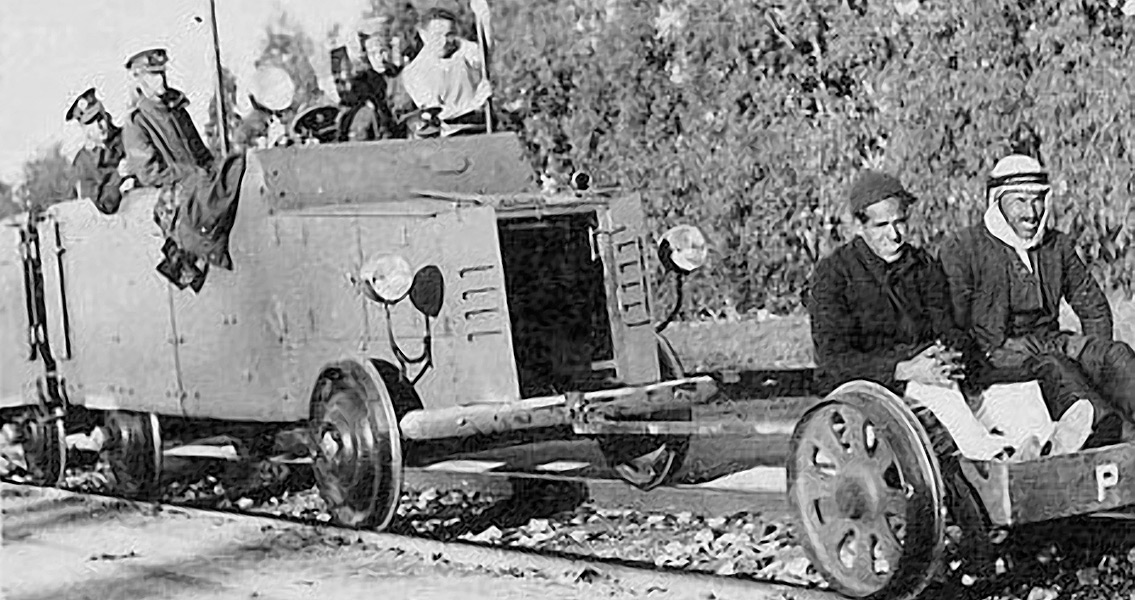<![CDATA[Between 1920 and 1944, Great Britain administered Palestine, a period referred to as the ‘British Mandate.’ One of the key issues during this period was the – in the words of the mandate for British rule – ‘establishment in Palestine of a national home for the Jewish people, it being clearly understood that nothing should be done which might prejudice the civil and religious rights of existing non-Jewish communities in Palestine, or the rights and political status enjoyed by Jews in any other country.’ Not all groups were satisfied with this mandate, however. In 1936, a large Arab revolt occurred; this nationalist uprising by Palestinian Arabs opposed British colonial rule in the area. A tough British counter-insurgency campaign was waged, crushing the revolt by 1939. Estimates for the number of casualties vary, but it is thought that nearly 20,000 Arabs were injured or killed. New research has looked at this revolt, in particular a rather under-studied area: how the British supported local Jewish and Palestinian anti-revolt groups to divide and defeat the rebels. Matthew Hughes, from Brunel University, has been studying Palestinian ‘peace band’ militia. These peace bands were Palestinian, pro-British entities which opposed the violent anti-government Arab revolt. Peace bands were made up of disaffected Arab peasants, recruited by the British administration in order to combat Arab rebels. Often, these were captured Arabs who had been fighting in the revolt. Despite their peasant origins, the bands represented the interests of landlords and rural elites. They were particularly influential and active during the latter half of the Arab revolt, from September 1937, onward. The British, Hughes argues, used collaboration as a weapon to bolster imperial control of Palestine. “The British pacification campaign against the rebels encouraged Palestinians to internalize the colonial project and collaborate with the government, and that endemic brigandage alongside the need to survive the hard times of military operations encouraged Palestinian collaboration with the British,” Hughes writes in his study, published in the Journal of Contemporary History. Peace bands were often funded by the British and, occasionally, the British directed their operations. From September 1938 onward, Britain subsidised a peace band leader called ‘Abd al-Hadi. They paid each man in his peace band six Palestinian pounds per month; this was a much higher income than the insurgents who were usually paid between 30 shillings and four Palestinian pounds. “The willingness to pay a good wage shows how seriously the British authorities took the peace bands,” Hughes notes. “By comparison, a British Palestine police constable earned around £P15 per month, so £P6 for an Arab fighter was a good salary, especially considering the typical differences in wages between colonial masters and subjects.” Hughes states that these peace militia were not particularly politically engaged; they would switch sides as suited them. Rather than fighting for any pro-British cause, they were primarily fighting for pride and personal gain. What the peace bands represent, Hughes argues, is a British-instigated ‘Arab civil war.’ For the British, collaboration offered some Palestinians a means to pursue family vendettas with tacit official approval. Hughes writes: “Palestinians, erstwhile rebels and notable families instinctively preferred the temporary advantages of (often temporary) collaboration to pursue personal agendas, they were unable to subsume their differences in the face of a common enemy, and they naively thought that they could simultaneously collaborate and resist.” The Arab revolt in the 1930s came up against a well-disciplined colonial power that effectively divided and defeated a politically inchoate enemy. This lack of political unity proved fatal for the revolt. Hughes effectively demonstrates that the British use of peace militia reveals a large amount about how colonial structures remain in power. For more information: www.jch.sagepub.com Image courtesy of Wikimedia Commons user: Hohum]]>
British Collaboration During The Arab Revolt
